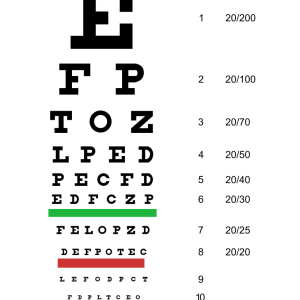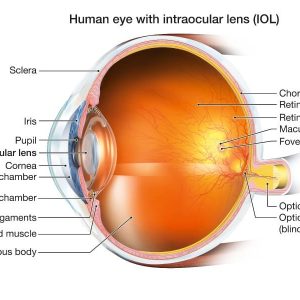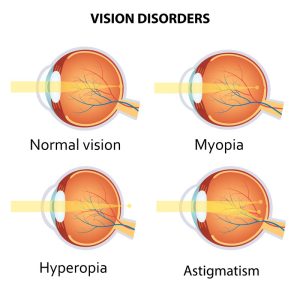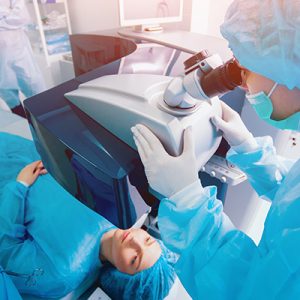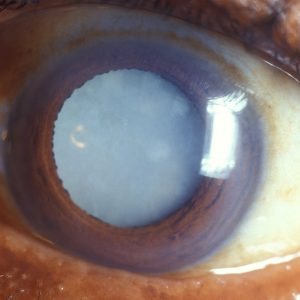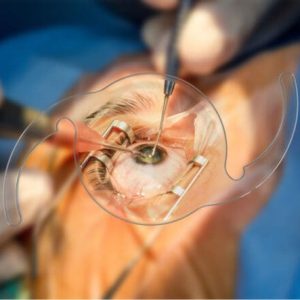Management of Refractive Errors and Refractive Surgery
Director: Professor of Ophthalmology
Georgios Kymionis
Medical School, National and Kapodistrian University of Athens (EKPA)
Postgraduate Program
Contemporary Knowledge & New Techniques
The only Master's program in the Greek and European academic sphere that interdisciplinarily approaches refractive surgery with the participation of distinguished experts.
Professors
Distinguished scientists from all fields of biomedical sciences, both domestic and international.
Program
Pre-op assessment, methods of refractive interventions, and post-op monitoring.New therapeutic protocols and trends in refractive surgery.
Gallery
E-learning
Integrated e-learning system of the National and Kapodistrian University of Athens (EKPA).
Organization of the Master's Program
Enrollment for four semesters.
Preoperative assessment
Refractive surgery with laser
Refractive exchange of intraocular lens & cataract
Post-op evaluation & Complications
Practical training
Dissertation/Thesis
Regarding the Master's Program
The primary reason for establishing the Master’s Program “Management of Refractive Errors and Refractive Surgery” is to train participants with the latest information in refractive surgical procedures. It provides specialized knowledge on new therapeutic protocols, the latest data, and trends in refractive surgery research. It is emphasized that it is the only Master’s program in the Greek and European academic sphere that approaches refractive surgery in a multidisciplinary manner (epidemiology, pathogenesis, clinical presentation, diagnosis, conventional, targeted, and personalized treatment, supportive actions, research). This is achieved through the participation of distinguished scientists from all fields of biomedical sciences, both domestic and international, who are involved diagnostically and therapeutically with the cornea.
Educational Objectives of the Master's Program
"Management of Refractive Errors and Refractive Surgery"
Education in the modern multidisciplinary diagnostic and therapeutic approach to refractive surgery emphasizes an introduction to contemporary research, with a focus on emerging cutting-edge technologies.
Students attending the Master’s Program “Management of Refractive Errors and Refractive Surgery” will engage in specialized subjects related to refractive surgery, including refraction, preoperative assessment, postoperative monitoring, prevention, and management of complications. Additionally, they will be instructed in surgical techniques and the evolution of refractive interventions. Finally, the program aims to develop appropriate skills for experimental research and the quality assessment of clinical practice. The subject matter is broad and encompasses numerous parameters not covered in specialty training, essential for understanding and performing refractive interventions.
Duration of Enrollment, Students, and Selection Criteria
The duration of enrollment is four semesters (total study cycle). The maximum number of students eligible for training is 35. Graduates from domestic or recognized equivalent foreign institutions, as well as graduates from other Departments of domestic or recognized foreign Higher Education Institutions, are accepted. These include:
- Medicine
- Nursing
- Optometry
- Optical Biotechnology
The selection among candidates occurs through interviews conducted by members of the Coordinating Committee. Committee members assign a score to each candidate on a scale from 0 to 100, considering the following factors:
- Bachelor’s degree grade (20%)
- Grade in undergraduate courses relevant to the Master’s Program (5%)
- Relevance of the bachelor’s degree and candidate’s knowledge to the Master’s Program subject (5%)
- Proficiency in other foreign languages (5%)
- Recommendation letters (5%)
- Relevant research or professional activity (10%)
- Possession of a postgraduate or doctoral degree (10%)
- Oral interview by a three-member committee appointed by the Coordinating Committee (40%)
Candidates with the highest scores will be selected for enrollment.
Tutoring language
In the event that no international students enroll, the official language of instruction and thesis writing is Greek. An exception is made for courses taught by foreign speakers, which will be conducted in English. In the case of international students who choose to enroll and do not have proficiency in the Greek language, the courses will be conducted in English for them, and they will be allowed to write their thesis in English.
Participation eligibility
Holders of a Bachelor’s degree from the Departments:
• Medicine
• Nursing
• Optometry
• Optical Biotechnology



